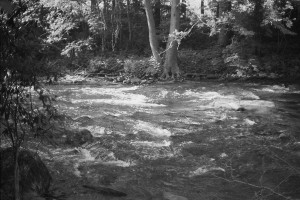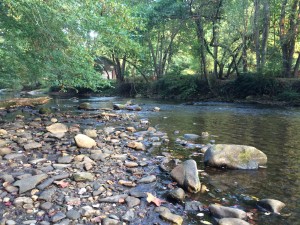Now eighty (80) days after the earthquake and tsunami that contributed to the worst nuclear disaster in recorded history (which continues to compound each day) the world (as our local and national news would show it) seems somewhat unchanged. Sure, America has extended its debt to $14.3 Trillion, but discussions in mainstream news vary from the fancy hats at the Royal Wedding (recently on eBay with proceeds going to charity), the price of gasoline still over $4 per gallon (on this Memorial Day weekend) and how we need to change schools to graduate the most students into four-year colleges (despite the unfortunate reality that the student loans required to finance their programs of choice will likely cause them to enter a phase of indentured servitude).
Please don’t get me wrong, I believe that every person who plans to contribute to society is obligated to learn and continue learning throughout life. Yet, what is learned (and at what cost) must take into consideration new opportunities resulting from the “open-sourcing” of information through the Internet. MITOpencourseware has just celebrated 10 years of innovation. Though no degree is awarded for those who attend, no tuition is charged. Who would stand to gain the most if this type of learning “counted” in the big picture? Who would stand to lose the most – the universities or those collecting interest off the student loans?
With the power of the Internet, we can learn incredible things – such as specific detail about the effects of natural disasters. From the Chilean earthquake and its relationship to our days being shortened by 1.26 microseconds, to the devastation of Japan’s 9.0 earthquake and resulting tsunami on March 11, 2011 showing once booming seaports reduced to rubble, access to information has never been faster or so rich. And yet, with a seemingly unlimited supply of data, why is it that the discussion of radiation levels has all but disappeared from the mainstream media? To this end, a 21st Century learner must not only analyze and evaluate available information, but also seek out what is not available and ask, “Why?” Beyond thinking about their questions and learning along the road to find out “why,” “critical doers” will be compelled to take action. It is the action, or the application of knowledge and skills, that makes our journey purposeful.
So how might 21st Century learners use recent events to hone their “Critical Thinking, Learning and Doing skills? Here are some timely examples . . .
One high school senior who watched the news reports of the devastation in Japan recalled a little girl crying for her parents who were killed on March 11, 2011. He learned that many children were orphaned on 3/11/11. He decided to use his musical talents and network of musicians to create a benefit concert to support the orphans of the earthquake and tsunami. On May 15th, the Walk with Children Benefit Concert for the Orphans of the Japan Disaster was held at Ravinia’s Bennet Gordon Hall. All proceeds from the concert and T-shirt sales went to the Ashinaga Organization to continue its support of orphans. This student thought critically about how to use his musical talent and social network to bring support to a compelling cause. He did something!
University of Chicago Japanese Student Association’s Relief & Rebuild fund raising effort sold “Downwinder” T-shirts at the Atomic Age Symposium on May 21st to raise money for students who lost homes, families and financial support when the earthquake and tsunami hit. They thought about the need of students like themselves and took action to raise support and funds for other university students. They did something!
One eighth grade student, despite being airlifted from a cruise ship to save his life over spring break, decided to take action to improve conditions for children in the ICU of a hospital in Puerto Rico that saved his life. Seeing the lack of books and DVD resources available to students while recovering in the hospital, he began collecting, packaging and shipping these resources upon his return to school after break. He has shipped four boxes of materials to the hospital already. He recognized a need, developed a plan, and put the plan into action. He did something!
Musicians from the Juilliard School of Music arrived in Japan just before the typhoon last week to bring music and support to the people living in Miyagi Prefecture. From May 31st to June 3rd they will play concerts for people living in the shelters in Minamisanriku, Ishinomakia and Higashimatsushima. They are some of the most accomplished musicians in the world. Many will find their careers take them to the most famous concert halls in the world. Yet, these current and former students took time out of their lives to present the gift of music to those who will likely not hear a concert again for some time. These students worked their entire lives to develop the skills that brought them to Julliard. They learned from the greatest teachers to perfect their skills. Now they have brought them to those who have suffered unimaginable loss. They did something remarkable with the learning they received.
Opportunities for “Critical Doing” are all around us. Local devastation from tornadoes across the US, flooding, poverty, and the economic collapse have seen many critical doers taking action. Skills of carpentry, cooking, and care go a long way. David Slater of Sophia University in Tokyo used his knowledge to help those who want to go to Japan to help. We can all contribute our privilege in some way. Mine begins with some critical questions:
How have I applied my skills? I have done a lot of learning and thinking – but am I doing enough? Am I doing anything remarkable with the skills and knowledge I have gained to help those who have the least? Have I leveraged my privilege to support those in need?
This is the first challenge of Critical Doing.

